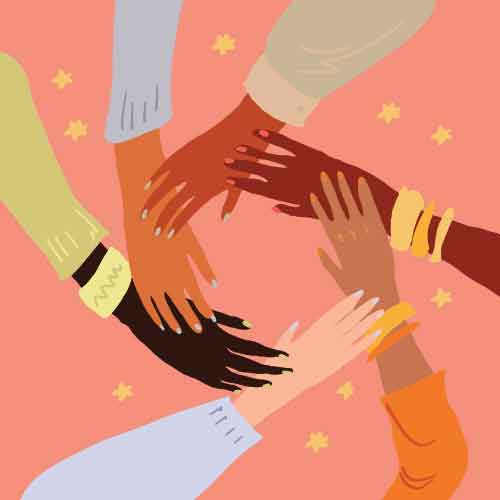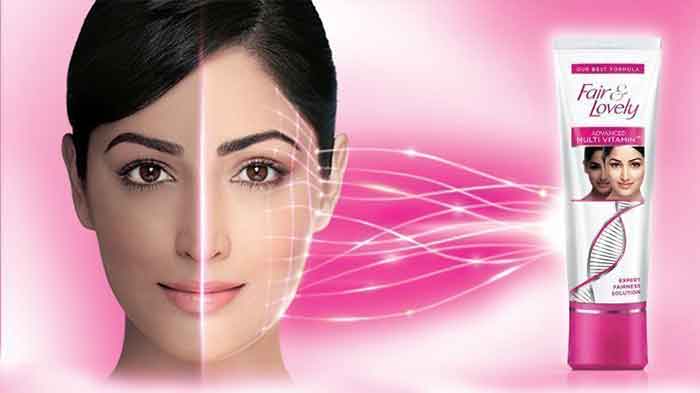
As soon as a child is born, the second question asked is, “gora hai ya kala” as obviously the first being, “ladka hai ya ladki”. We live in a society where being born as a male is already a privilege in itself let alone your complexion, as it doesn’t really matter, but God forbid if you’re a girl, that too a dark skinned, then not even God can help you. You must be thinking that I’m exaggerating things, but believe me, I really wish that I was. In our culture, all virtues are associated with fair, while anything dark has negative connotations, for instance we have been taught in school that white signifies peace, innocence, goodness, purity, virginity and what not. It is believed to be the colour of perfection, black on the other hand is the colour of death, evil, fear, rebellion. Nobody is born in this world with a thinking that certain skin coloured are more preferable than others, these things are taught rather than inborn, they are taught to us by the society and its institutions.
To make things more clear, imagine a box of crayons in front of you and your friend asked you to pass a “skin colour” which colour would you pick? Definitely not a brown or a black one, but a peach coloured crayon. Over here the question is from where do we learn that this particular colour is called “skin colour”? If I ask myself this, to be honest I really don’t remember when I started believing that only a crayon of that particular shade can be called “skin colour”. Hindustan Pencils, the manufactures of the popular Nataraj and Apsara pencils have started a Colorama crayon series which has a peach coloured crayon labeled as ‘skin’, despite it not being the most prevalent skin colour of Indians. In a country with as many skin tones as India, labelling one particular shade as “skin colour”, unknowingly deepens the colour bias against skin tone at a very tender age. This came into notice in 2013 when a second-year law student of NLU, Bengaluru filed a complaint against Hindustan Pencils at the district-level consumer forum in Bengaluru. When he lost the case at the district forum, he took it up to the State Consumer Commission, where it is now being heard.
Colourism in India has a long history, it was most visible during the British rule, where those individuals with a lighter skin colour enjoyed more privileges from the British, they were considered to have a more affluent status and gained preferences in education and employment. Darker skinned individuals were socially and economically disadvantaged. Similarly, many studies show that cast system too invokes skin biases among Indians. Historians observed that since the upper castes were not involved in tedious labor and weren’t as exposed to the sun as the lower castes, they used to stay indoors and thus possessed lighter brown skin. On the other hand, the lower castes due to continued exposure to sun from working in agricultural fields and outdoors had darker skin tones.
Even if we want to, we can not deny the fact that we Indians consciously or subconsciously are not obsessed with “fair skin”. From Instagram skin brightening filters, to beauty industries flooded with products to enhance your skin complexion and to the matrimonial advertisements seeking “fair skinned bride”, our obsession with fair skin is deep-rooted. Another thing we are obsessed with is Bollywood and we idealise our superstars. Why I bring Bollywood over here is because our big- time actors with huge fanbase are still advertising products like “Fair and Lovely”, and “Fair and Handsome”, these are popular skin-lightening creams and by associating these products with Bollywood stars it sends out the message that Bollywood does support the idea of fair skin being better. Since we idolise these stars so much, thus imagine how much influence they have on our mind and our thoughts. However, The Advertising Standards Council of India attempted to address skin based discrimination in 2014 by banning ads that depict people with darker skin as inferior, this was a step in the right direction but it fails to make much change, as we still see advertisement promoting fairness products and women with dark complexion are still desperately trying to look fair.
We all grew up listening to jokes addressed towards a dark skin person like, “the electricity went out in the hospital when the mother of that person was about to deliver him/her, and that’s how they got their dark colour” or “they don’t require a ‘nazar ka kala tika’ because they themselves are so dark in colour”, and unknowingly we ourself start making those jokes if we are born with “privileged skin colour”. From the very young age people with dark skin are made to feel that they are unfit in society just because of their skin colour. Relatives constantly compare their complexion to others, and it becomes impossible to escape such judgments. Difficulties faced by girls with dark complexion are more in comparison to boys. While growing up they are pressured to change the way they look by making them try out homemade remedies to lighten their skin colour and when they attain a suitable age for marriage, talks within the family about the difficulties in finding a groom for them begin. All these things not only lead to mental trauma, but also makes a person insecure and hampers their personality development. They start to escape social interactions, feel uncomfortable to be in a photograph or attending social functions.
Thus, next time before calling someone with dark skin “kala” or making a joke about it, think about all the mental trauma that they go through everyday just because of their complexion. Skin colour is just one of our biological characteristics, having a darker complexion can in no way make a person a lesser human being, however discriminating that person on the basis of that characteristic can make us one.
Shafaq Siddiqui is an undergraduate student of Sociology from Jamia Millia Islamia.
E-mail ID- [email protected]
SIGN UP FOR COUNTERCURRENTS DAILY NEWSLETTER








































